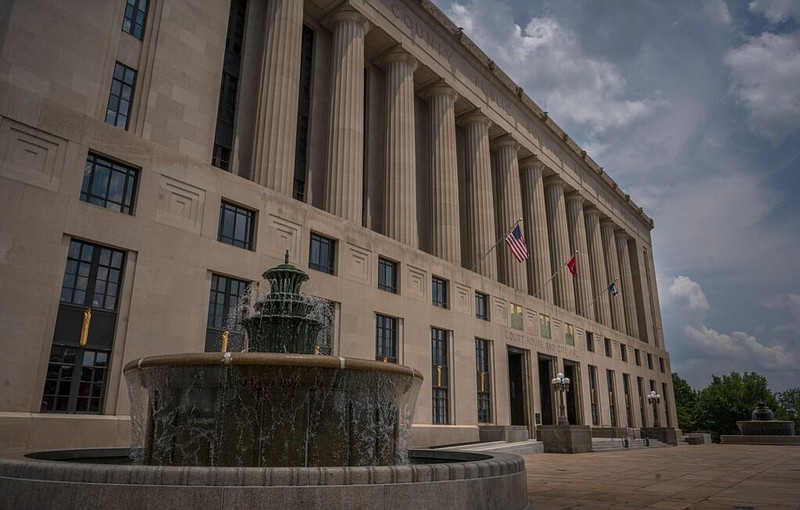A bill that would cut the number of elected representatives on the Nashville Metro Council in half sailed through a legislative subcommittee on a party-line vote -- one of two bills proposed by GOP lawmakers this year to modify the Democratic-leaning capitol city's local government, which recently bucked efforts to host the Republican National Convention.
House Bill 48, sponsored by House Majority Leader William Lamberth of Cottontown and Sen. Bo Watson of Hixson, chairman of the Finance, Ways and Means Committee, would shrink the 40-member Metro Council to no more than 20, beginning in 2024.
Its GOP backers say the measure is designed to make government functions more efficient as Nashville experiences exponential growth. Only two other cities in the nation -- Chicago and New York City -- have city councils that are larger than Nashville's, Lamberth noted Wednesday, when the bill cleared the subcommittee.
Nashville leaders have rejected the idea that a form of local government in place since 1963 needs reshaping, noting that Nashville voters had the chance in 2016 to reduce the council to 27 but rejected it by a margin of 62%.
"The people of Nashville and Davidson County originally voted for 40. We revoted and kept it at 40. Obviously, people believe we can function at 40. We're still 40," Nashville Vice Mayor Jim Shulman told lawmakers during Wednesday's House Cities & Counties Subcommittee hearing. "We believe if they wanted change, they (Nashville voters) should be the ones to decide."
(READ MORE: Nashville Mayor John Cooper declines second run for top city office)
"We want to make sure we provide a government that represents all the people in Nashville and Davidson County. We wanted equitable representation, and we still do," Shulman said. Among the concerns of a reduced Nashville council is that minority community representation will also be reduced.
And Rep. Sam McKenzie of Knoxville, the subcommittee's only Democrat -- and sole no vote on the measure -- recited examples of counties across Tennessee that have a combined greater number of representatives on city and county bodies than does Nashville, where the council is the sole representative of a consolidated city/county government.
Lamberth dismissed the comparison.
"Constitutionally, the counties are different entities completely," Lamberth said. "The metros were created by acts from the state ... To compare counties and cities is not comparing apples to apples. It's apples to oranges at best. We simply don't have the authority to change the size of county commissions."
Reducing the size of the Metro Council, Lamberth said, would not impinge on the autonomy of local government.
"The decisions they make are theirs," he said. "Who they elect -- those decisions are theirs, but the broad parameters on what a city council or metro council is allowed to do is set by this body."
The measure's language applies to all Tennessee cities, but would affect only Nashville -- the sole city council in Tennessee with more than 20 members.
The bill is not alone in targeting Nashville's local governing bodies: HB1176, introduced this week by Rep. Johnny Garrett, R-Goodlettsville, would replace Nashville's airport authority and sports authority with new governing bodies created by the legislature, with the majority of those bodies' members appointed by the governor, House and Senate speakers.
Read more at TennesseeLookout.com.
